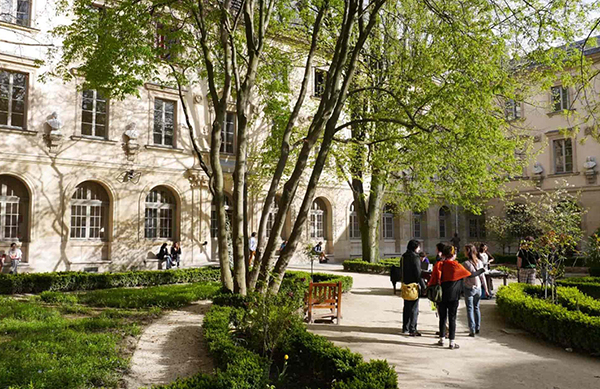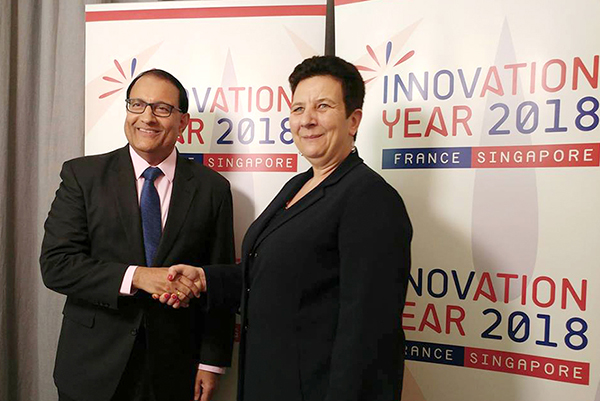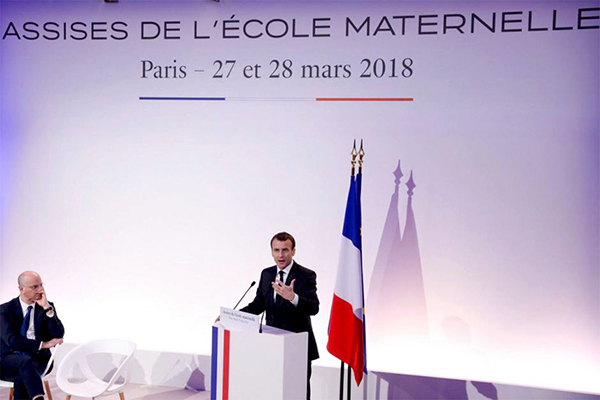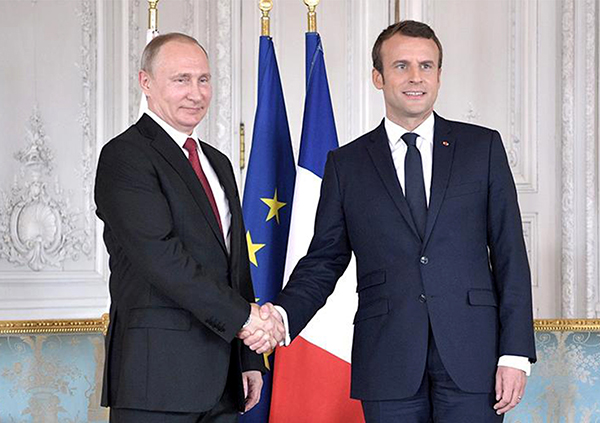Emmanuel Macron's Reforms of Higher Education and Research

France has always been known for its highest cultural and educational standards. Throughout its history, the French higher education system has undergone multiple changes. Nowadays, when internationalization has become one of key aspects of higher education quality improvement, most reforms are aimed at enhancing the reputation of the university education and increasing the competitiveness of French HEIs on the global stage. This agenda is enthusiastically pursued by the new French government under the leadership of President Emmanuel Macron.
Previous major reforms
Over the decade preceding Emmanuel Macronʼs election, the French higher education system had been drastically overhauled twice. In 2007 it was totally revamped by the law known as Liberties and Responsibilities of Universities. This law gave universities entire financial and administrative autonomy, i.e. control over their budget, recruitment and estate management. In 2013, with the adoption of the Law on Higher Education and Research, the French university system underwent total restructuring: universities, elite engineering schools (so-called grandes écoles) and research centers were joined into 25 higher education and research clusters. The purpose was to harmonize higher education and research within a region, with each of the 13 regions of metropolitan France having at least one such cluster within its borders. A national research strategy was also established, in harmony with the European agenda Horizon 2020 connecting science to society and opening up further research and innovation activities.
As part of restructuring, new visa regulations and administrative requirements for international students were introduced, and the number of English-taught courses and French lessons for non-Francophone foreign students were increased [1]. According to this law, French students gained the right to access more selective university programs if they had sufficiently high grades on their baccalauréat (high school graduation exam). Collegiality and democracy within HEIs was reinforced by creating an academic council and giving it a role in decision making [2].

New government, new trends
At the World Economic Forum in Switzerland held in January 2018 Mr. Macron expressed his regret that French universities had been dropping down in the international rankings in the last few years and asserted that France had started to profoundly reform its educational system and invest heavily in its development [3]. Indeed, over the past year, numerous ambitious and radical reforms in higher education have been proposed, some of them being rather controversial and evoking strong resentment and protests from officials and students. One of the most disputable reforms is that of the traditional baccalauréat system that was found too complex as it was focused on a single series of exams in the final school year, covering too many subjects and not allowing for enough specialization [4]. All students in France passing their baccalauréat were guaranteed a public university place regardless of their grades, which has led to the excessive number of applications for such popular subjects as law and psychology and the introduction of the lottery system of student selection, and, as a consequence, to a considerable decline in studentsʼ knowledge quality. The new government has decided to get rid of this unpopular and unjust system and tighten the admission requirements by establishing new criteria for applicants, for example, “capacity for logical thought” for future lawyers, “scientific competencies” for physicists, “essay writing skills” for philologists. Universities are also supposed to select students based on their motivation and teachersʼ opinions. Those who do not meet the criteria can be offered supplementary courses. The authors of this reform state that it will cope with first-year studentsʼ lagging behind which has already amounted to 60%, while its critics fear that it will defy the principle of a universal and equal access to higher education.
The new government would like to make French HEIs fully autonomous and more flexible so that they can completely unleash their potential. They will have more freedom in choosing their program offering and recruiting their staff according to international standards of quality and independence. New educational reforms will also include allocating extra budget to HEIs on a contract basis, encouraging them to raise new funds and increasing their borrowing capacity. This will allow HEIs to invest more in promoting their programs and strengthen their positions in the international higher education market. A lot of improvements in studentsʼ life, e.g. in housing and financial support, as well as an increase in the number of international mobility scholarships are also suggested.
Mr. Macron is determined to make France “the world leader in environmental research” by creating poles of excellence. Over 40% of PhD students at French research universities are foreign-born, and doctoral institutions would gladly accept even greater numbers of international students to become more popular and more competitive in the global market. That is why more foreign specialists will be enticed to come to France by facilitating visa and residency permit procedures [5].

To encourage more international students to study in France, Mr. Macron has announced a unique government-funded program to promote French speaking across the world boosting “learning, communication and creation” in French. Better language programs for refugees and those who are “less well integrated” in France will be also offered [6]. At the same time, the French government aims to develop English language learning among students to enable them to “act and move in globalization,” according to French Prime Minister Edouard Philippe. He said that “to master English is to better control oneʼs future,” and that the students should be provided with help to pass internationally recognized English language tests [7]. Such language policy is surely supposed to be a step towards a more multilingual learning atmosphere where different languages can successfully co-exist.

Emmanuel Macron is committed to strengthening European identity and developing student mobility: one of his objectives is to get 220,000 French students involved in the Erasmus program by the end of his mandate in 2022.
Strengthening international educational ties
With the intention of reinforcing the countryʼs positions in the world arena and attracting more foreign students and researchers, the new French government has put forward some initiatives and has signed a number of international cooperation agreements with a special focus on the development of research collaboration and academic mobility, some of which are presented below.
In 2017 the Élysée Palace suggested creation of around 20 “European universities” by 2024 using the EU research and education funding (at least €100 million in total). They will be based on networks of four to six institutions, in at least three member states, with a pilot project to be launched in September 2018. According to Macronʼs plan, these small clusters of like-minded universities will develop joint programs for Masterʼs and doctoral degrees, lifelong learning courses, and research and innovation projects, share infrastructure and some support functions such as grant management and student enrollment, provide an integrated curriculum in several countries and languages, with more students moving around among the universities rather than staying at home. The Presidentʼs goal is to support development of the institutions, individual researchers or projects, staff and student mobility, make universities more competitive internationally, connect European regions, and promote innovation [8].

The networks including 20 “European universities” proposed by Macron will consolidate the triangle of innovation, research and education in Europe and encourage more European integration in higher education.
In January 2018 the French Minister for Higher Education, Research and Innovation, Dr. Frédérique Vidal, and the Minister for Trade and Industry of Singapore, Mr. S. Iswaran, met to reaffirm the existing bilateral relations between France and Singapore in education, science and research and to discuss the conditions for further advancement of their cooperation on innovation. They are committed to developing further interactions between the two innovation ecosystems as a result of the Year of Innovation.
In March 2018 Mr. Macron paid the first state visit to India. He participated in the Knowledge Summit held by the French Institute in India along with the Ministry of Higher Education, Research & Innovation of France and the co-Ministry of Human Resource Development. At the summit a MoU for mutual recognition of academic qualifications was signed between the two countries to strengthen their collaboration through academic exchange. The President also declared that he would like to double the number of Indian students coming to France. Fifteen other MoUs between various institutions of India and France in the areas of higher education, research, innovation, faculty exchange, scientific cooperation were also signed.

On May 24, 2018 Russian President Vladimir Putin and French President Emmanuel Macron held a joint conference at the 22nd St. Petersburg International Economic Forum where they discussed the French-Russian bilateral relations in different areas. According to the results of negotiations, Saint Petersburg State University and Paris-Sorbonne University–Paris IV signed a cooperation agreement for the development and implementation of double degree programs in History, Literature and Philosophy.
In May 2018 the Third Bilateral Seminar on the Transatlantic Friendship and Mobility Initiative took place. The French and US representatives discussed the prospects for international cooperation between the two countries in the field of higher education. France intends to double the number of incoming US students as well as French students attending US HEIs. For this purpose, it has allocated funds to support international student and scholar exchange through its “Make Our Planet Great Again” initiative, partnerships with US community colleges and innovative programs such as the two-week all expenses-paid boot-camp for community college students to visit France. The bilateral goals in student mobility can be achieved through education partnerships that foster mutual recognition of degrees, offering dual degrees, and incentives such as paid internships for exchange students and experienced-based learning objectives.
All in all, despite some complexities, the new French governmentʼs reforms and international activities in higher education and research sectors are expected to have a positive impact on internationalization of higher education and science in France and maintain the countryʼs status as one of the most popular destinations for students and researchers from all over the world.
REFERENCES
1. Internationalization is a global trend of higher education. By QS Asia News Network [Online] Available URL: http://qswownews.com/internationalisation-is-a-global-trend-of-higher-education/ [Accessed May 28, 2018]
2. Aux, Jean-Pierre. Is the new French research and education reform going far enough? [Online] Available URL: https://www.euroscientist.com/is-the-new-french-research-and-education-reform-going-far-enough/ [Accessed May 28, 2018]
3. President Emmanuel Macron sets out response to globalization in Davos [Online] Available URL: https://franceintheus.org/spip.php?article8475 [Accessed May 28, 2018]
4. Emmanuel Macron wants to change the beloved baccalauréat. [Online] Available URL: https://www.economist.com/europe/2018/02/08/emmanuel-macron-wants-to-change-the-beloved-baccalaureat [Accessed May 29, 2018]
5. Why Emmanuel Macron’s Victory May Change the Face of International Higher Education. [Online] Available URL: https://www.educations.com/higher-education-news/emmanuel-macron-higher-education-12412 [Accessed May 28, 2018]
6. Emmanuel Macron launches global campaign to promote French speaking. [Online] Available URL: https://www.theguardian.com/world/2018/mar/20/emmanuel-macron-campaign-french-speaking [Accessed May 29, 2018]
7. India & France sign MoU to boost student mobility. [Online] Available URL: https://acei-global.blog/2018/05/17/the-transatlantic-friendship-and-mobility-initiative-bilateral-seminar-may-14-15-2018embassy-of-france-washington-d-c/ [Accessed May 29, 2018]
8. Hudson, Richard L. Macron to EU: Faster action needed to build university networks in Europe. [Online] Available URL: https://sciencebusiness.net/news/macron-eu-faster-action-needed-build-university-networks-europe [Accessed May 29, 2018]